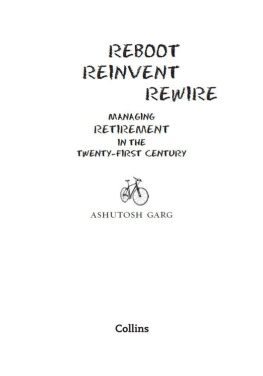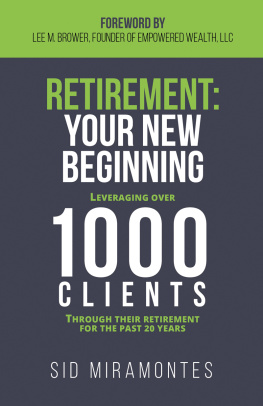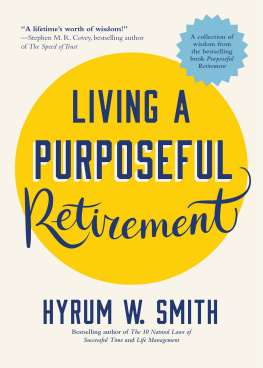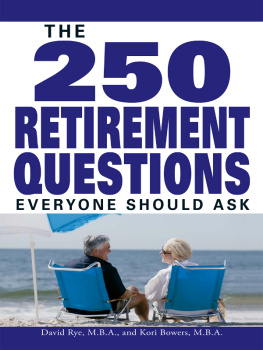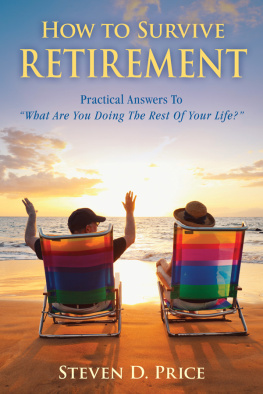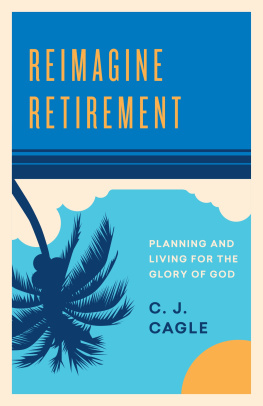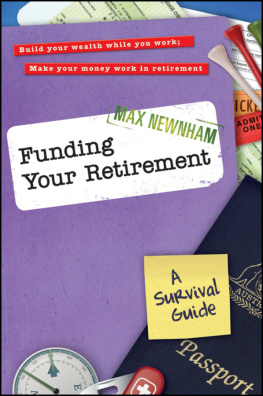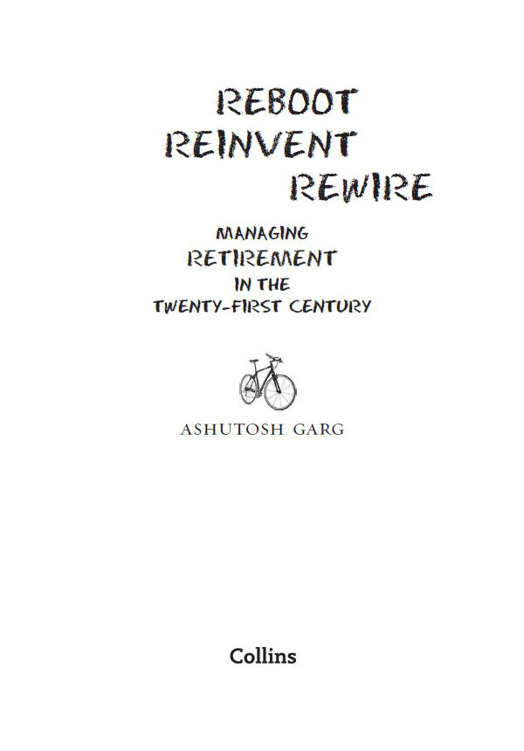'I am only fifty-eight and I am not ready to retire in the next two years.'
This is a common sentiment that I hear from so many friends, who like me, have worked for over thirty-five years, have seen their children grow up and embark on their careers, and have witnessed the ups and downs of working life. They have also witnessed the relationship with their spouses mature over timefrom two fire brands with independent minds starting a new life together to acceptance of one another as life-long companions.
The first twenty-five years of our life are spent growing up and being educated, as we prepare as best as we can to enter the 'adult world'. The next thirty to forty years are spent working for a living, paying the bills and raising a family. And, hopefully, the final years, our third act, will be spent retired, free from the stresses and challenges that we have managed to survive to reach this far.
Life is by no means an easy road to travel on, yet it is something that all who are born must do. There is 'no road map', no 'guide book' for people after they retire. You have to find your own way.
Looking back at the years gone by, I am sometimes amazed at the resilience and persistence exhibited by us in our lives. In our effort to make ends meet and prepare for our future, we are often forced to endure thankless and sometimes abusive work environments. Stress becomes our best friend as we attempt to pay never-ending day-to- day bills while somehow also providing for big-ticket expenses like education, clothing, cars and weddings. We are forced to delay the pursuit of our own interests and passions because there is either not enough time or not enough money.
Today, as I am about to reach this magical age, I wonder if I am ready to 'hang up my boots'. Like me, according to the 2010 Census of India, there are over fifty-eight million people (twenty-eight million men and thirty million women) above the age of sixty-five and these numbers are increasing as our population gets older. It is estimated that the number will increase to seventy-six million people by 2020!
As I pondered on my reality, I became curious about my peers' attitudes towards retirement, so I began talking to many of them. I spoke with many men and women over sixty who were either already retired or were just starting to think about it. What I found most shocking was the level of denial in their minds about the subject of retirement. While many had been diligent about saving and investing, few had considered the psychological jolt that usually accompanies the end of an active working career.
'Yesterday's sixty is today's forty,' said a close friend to me when we were discussing getting older.
'Age is only a number,' said another.
Were these remarks made only to convince ourselves that we were not getting older, or is this the new reality of today's generation of Indians approaching the age of superannuation?
When I started work in 1979 at the age of twenty-two, the retirement age in my company was fifty-two years and I used to think that three decades was a long way off. A few years later, the retirement age was raised to fifty-five and like me, a lot of young managers in the company complained about how the top management was interfering with our careers by allowing the 'oldies' to stay on for another three years! Today, as I approach fifty-eight, I wonder what it would have been like to have retired at a time when I would have never had the opportunity to explore the best years of my career!
We often hear the statement: 'I must make enough money and retire early.' This happens when you link retirement with money. Over the years I have seen that while a critical component of retirement is indeed financial security, the act of retiring or preparing for it encompasses much more than only money.
Just like the baby boomers in USA, India too has its post-Independence children, born after 1947. The oldest of these children will be in their early to late-sixties in 2015 and a majority of these post-Independence kids may probably still be working but thinking of their impending retirement.
Most of us may have achieved what we set out to do at the start of our career or have accepted that what we have achieved is all that is possible in our chosen line of work. We would have also felt pressure from our younger colleagues to move aside, to let the youth brigade move forward faster.
Over these years, I have seen the pain of parents ageing and departing. I have seen the pain of siblings leaving at a very young age and I have seen partners pass away very early in their journey together, leaving the other half alone and lost. I have seen friends die in their prime and I have seen the children of family and friends die well before they should have. I have seen sickness and ill health and have questioned the Almighty on His unfairness only to be told by someone, 'God takes away those people who He loves the most.
Yet most people, if they have led a relatively healthy life, will, with modern medicine, see life expectancy increase significantly. Our parents will generally be well into their eighties and we could expect them to live in to their nineties. If we retire from our chosen careers at the age of fifty- eight or sixty or even sixty-five, we would still have a full life of at least thirty to thirty-five years ahead of us after our retirement. This is approximately one-third of our life and we cannot possibly waste a large part of it feeling rejected or indulging in self-pity.
Retirement is not the end of the world.
It is the beginning of a new and more fulfilling life, without the stresses and strains, the pulls and pressures you had when you were young. You may have looked forward to retirement but a fulfilling retirement will not just happen. You have to plan for it and you have to plan by including the most important person in your life, your spouse. Unless both of you are in agreement, prepare for long-time dissonance in both your lives.
For me I realized that with ageing parents, the baton for the next generation was being passed on to me. The next generation of children in my family were looking up to me. When I visited their homes, I would be seated first. I would be served first at dinner and when I spoke they would listen attentively. On the one hand, I was beginning to feel less relevant at work and in the society that I knew; on the other hand, I was being respected more by the next generation of family. This is when I began to realize that life has a way of balancing itself out. The positives and the negatives will go hand-in-hand and it is up to us how we decide to deal with them.
When I sat down to write this book, I wanted to share my own thoughts and plans of life after retirement. As I started to write, I realized that like me, millions of post-Independence children are confronted with the same reality of an impending retirement in the next few years.
While most of us are not looking forward to continuing a 9 a.m. to 5 p.m. job, we are also unsure of how we will handle the remaining one-third of our lives.
Before you start to read this book, ask yourself the following questions:
- Which one belief about retirement will you change today?

